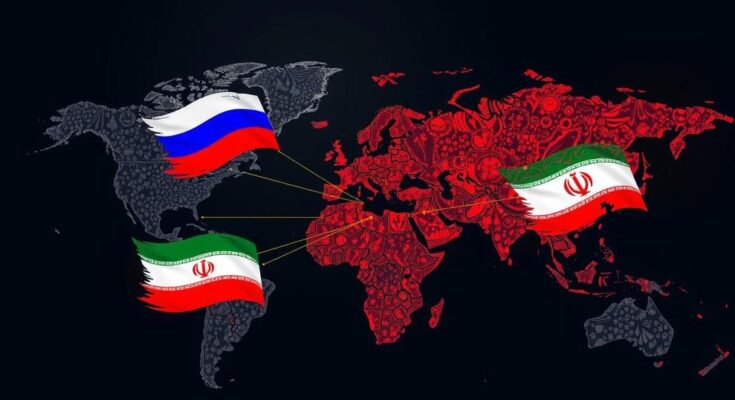U.S. officials are increasingly alarmed by a burgeoning coalition of China, Russia, North Korea, and Iran, termed a new ‘axis of evil’. Ties between these nations have strengthened, marked by military collaborations and mutual support in conflicts like the war in Ukraine. They are perceived as revisionist powers aiming to shift the current international order, thereby necessitating a robust response from the United States and its allies.
In recent developments, U.S. officials have expressed growing apprehensions regarding an emerging coalition comprising China, Russia, Iran, and North Korea, a bloc that has been referred to by some in Washington as a new “axis of evil.” This concern escalated notably during U.S. Defense Secretary Lloyd Austin’s visit to Rome, where he confirmed the involvement of North Korean troops in Russia, reportedly in preparation for participation in the ongoing conflict in Ukraine. Additionally, Russia has recently engaged in naval exercises with Iran, further highlighting the cooperation among these nations. During the war in Ukraine, support has been evident from these nations, with Iran supplying missiles and drones, North Korea providing artillery shells, and China facilitating the provision of dual-use technologies and industrial products. Representative Rob Wittman, vice chairman of the House Armed Services Committee, drew parallels to the historical Axis of Evil from the late 1930s, underscoring the shared ideologies of these countries that oppose common democratic values and human rights. He emphasized that these nations demonstrate a far greater capacity for global destabilization compared to Nazi Germany and its allies during World War II. In 2002, former President George W. Bush coined the term “axis of evil” in reference to nations that support terrorism, including North Korea and Iran. The contemporary application of the term encompasses the current alliance of China, Russia, Iran, and North Korea. U.S. Secretary of State Antony Blinken has characterized these countries as “revisionist powers” striving to fundamentally alter the international order. Although he noted that the U.S. does not seek direct confrontation with them, he acknowledged that the decisions made by these nations necessitate decisive actions from the United States to prevent adversarial outcomes. Wittman further articulated the advanced technological collaboration among these four nations, pointing to the intertwining of military technologies and arms trade that amplify their destructive capabilities within ongoing conflicts, particularly in Ukraine. Moreover, the shared ambitions of these countries indicate an intent to cultivate a self-sufficient economic zone independent from Western influence, as noted by Merrill Matthews. The implications of this partnership extend globally, given China’s pivotal role in bolstering the strength of this coalition, as the absence of China would render the alliance significantly less concerning, according to Christopher S. Chivvis. Chivvis also posited that crises in one region could potentially trigger coordinated military actions in another, highlighting the risks associated with this coalition. Thus, the intricacies of geopolitical maneuvering among these four powers underscore the need for vigilance and strategic responses from the international community to mitigate destabilizing threats. In conclusion, the evolving relationships among China, Russia, Iran, and North Korea present substantial challenges to global security and the established international order. The narrative surrounding a new “axis of evil” serves as a cautionary reminder of the potential consequences of unchecked authoritarianism and aggressive state behaviors on a global scale.
The term “axis of evil” gained prominence in U.S. political discourse following its introduction by President George W. Bush in 2002, originally referring to nations identified as actively supporting terrorism. Historically, the phrase reflects geopolitical tensions characterized by alliances among states with shared goals that directly oppose U.S. interests and promote authoritarian ideologies. In the current context, the reunification of China, Russia, Iran, and North Korea under this designation reflects increasing collaboration among these nations in areas such as military assistance, economic partnership, and technological exchange, as well as their joint activities in conflicts such as the war in Ukraine.
The concerns articulated by U.S. officials regarding the collaboration between China, Russia, North Korea, and Iran underscore the complexities of contemporary international relations. As these nations navigate their self-serving agendas, they pose significant challenges which could potentially destabilize regional and global equilibria. The evolving dynamics call for proactive measures from the international community to avert the emergence of a cohesive adversarial bloc that may threaten democratic values and global security.
Original Source: www.voanews.com




